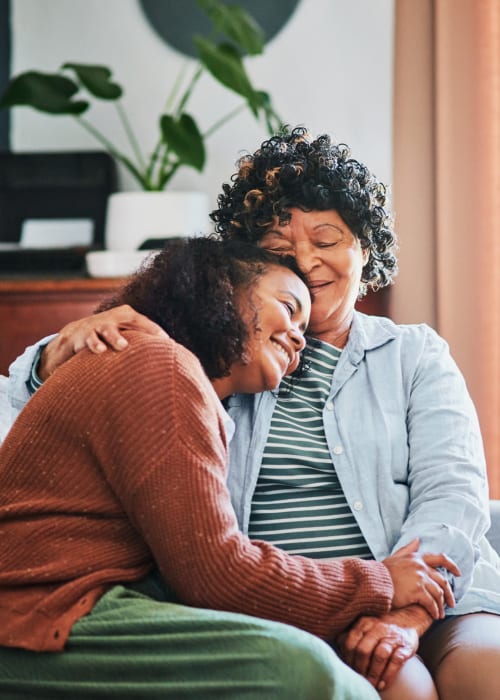10 Ways to Support Seniors’ Mental Health
Mental health is a difficult topic to discuss openly, and can be both rewarding and challenging, especially when caring for a senior loved one. As our loved ones age, they may face a range of mental health challenges, including depression, anxiety, dementia, or loneliness. At every stage of life, we have emotional needs that must be fulfilled in order for us to feel truly happy and healthy.
If you care for an aging loved one, you probably spend a good deal of time thinking about their physical health needs. You might drive them to medical appointments, make sure they’re getting the right nutrition, and put measures in place to reduce their pain or discomfort. Friends, family, and caretakers can all do their part to make sure the emotional needs of older adults are met.
Ways You Can Help Support Your Loved Ones Mental Health
1. Education
One of the most important ways to understand the specific mental health issues affecting your loved one is educating yourself on their condition, coping strategies, and treatment options. This can help you advocate for them and provide extra support when needed.
2. Encourage Communication
Provide an open and safe environment for conversations and encourage your loved one to share their feelings without fear of judgment. Listen actively and empathetically, validating their experiences. This openness can help them feel less isolated and more understood.
3. Seek Professional Help
If your loved one is struggling, encourage and advocate for them to seek professional help. This might involve visiting a therapist, psychologist, or psychiatrist. Offer to help them find a suitable professional and if able, offer to accompany them to appointments, provide a ride for them, or anything else that makes them feel comfortable.
4. Be Patient & Understanding
Mental health challenges can lead to mood swings, irritability, or withdrawal. Be patient and compassionate. Recognize that your loved one may not always express their feelings clearly or may resist help. Approach them with love and understanding.
5. Socialize
In many cases, lack of socialization drives the emotional changes in seniors as they age. When you get older, you may not find as many opportunities to connect with others throughout your day-to-day life. Social interaction is absolutely necessary for people of all ages to feel well. Even introverted seniors need to connect with others from time to time, so you should make sure that your loved one has regular opportunities to spend time with others.
6. Maintain Routine
Maintaining a daily routine can provide structure and stability, which can be comforting for seniors or those struggling with mental health issues. Eating meals around a regular time, exercise, and daily activities they enjoy can give your loved one something to look forward to and keep them in an overall better mood.
7. Encourage Healthy Lifestyle Choices
One's physical health is equally as important and linked to mental health. Helping to promote a balanced diet, regular exercise, adequate sleep, and limiting alcohol consumption can greatly support their mental well-being. The effects of alcohol on our body change as we age, so it’s important to understand the effects and get help if you suspect alcohol misuse — for more information, check out these resources.
8. Medication Management
Having a supportive environment to help manage, remind, and administer medication is essential in supporting your loved ones mental health. The Pillars team can assist in medication management and do regular check-ins to ensure they’re adhering to their treatment plan.
9. Create a Supportive Environment
Make their living space a comforting and safe place. Decorate with familiar items, ensure good lighting, and minimize clutter. A cozy environment can have a positive impact on their mood and overall well-being.
10. Take Care of Yourself
Supporting a loved one with mental health issues can be emotionally draining. Make sure to prioritize your own well-being. Seek support from friends, family, or support groups, and take breaks when needed. Caring for yourself enables you to be a better support for them.
Supporting a senior loved one with mental health issues requires compassion, patience, and understanding. By educating yourself, fostering open communication, and encouraging professional help, you can make a significant difference in their quality of life. Remember, it’s a journey, and every small step counts. Your love and support can empower them to navigate their mental health challenges with greater confidence and hope.
The Pillars of Hermantown is here to support you and your loved one along this journey! Our team is here to foster open communication, answer questions, and find solutions to have your loved one comfortable. Contact our team today!


